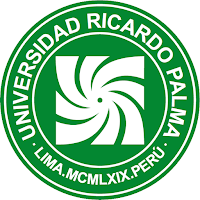César Vallejo: Revocation of Death. (Presence of a Motive Until its Origin in The Black Heralds)
César Vallejo: Revocation of Death. (Presence of a Motive Until its Origin in The Black Heralds) César Vallejo: Revocation of Death. (Presence of a Motive Until its Origin in The Black Heralds)
Article Sidebar
Main Article Content
Gustavo Lespada
Abstract
Death is an omnipresent subject in Vallejo’s poetry. In the so-called Human Poems there are many direct references and even a teleological feature is attributed to him: «To have been born to live from our death!». In his moving poems about the Spanish Civil War, Spain, Take This Cup From Me, «kill death» will be the Peruvian poet’s oxymoronic urge against the crimes of fascism. On this occasion we intend to trace the thread of the deal with death from those posthumously published poems to The Black Heralds (1919), to observe in this first poems —in a kind of journey to the origin— the nuances, the changes, but also the advances of an aesthetic identity, the first social or community pronouncements about death and its miseries, that is, the constancy and productivity of this motive in one of the most singular poetics of all time.
Article level metrics
Downloads
Metrics
Article Details

This work is licensed under a Creative Commons Attribution 4.0 International License.
La revista utiliza una licencia Creative Commons para mostrar a los lectores y a los usuarios cómo se pueden utilizar los contenidos publicados.
Los contenidos publicados en la revista están bajo una licencia CC-BY 4.0, la cual permite:
- Compartir, copiar y redistribuir el material en cualquier medio o formato.
- Adaptar, remezclar, transformar y construir a partir del material para cualquier propósito, incluso comercialmente.
Bajo los siguientes términos:
- Atribución. Usted debe dar crédito de manera adecuada, brindar un enlace a la licencia, e indicar si se han realizado cambios. Puede hacerlo en cualquier forma razonable, pero no de forma tal que sugiera que usted o su uso tienen el apoyo de la licenciante.
La información de licencia se muestra e incrusta en las páginas de artículos y en ficheros de texto completo como sigue:
«Este obra está bajo una licencia de Creative Commons Reconocimiento 4.0 Internacional».
Adorno, Theodor y Horkheimer, Max (1987). Dialéctica del iluminismo. Buenos Aires: Sudamericana.
Agamben, Giorgio (2009). Profanaciones. Buenos Aires: Adriana Hidalgo editora.
Blanchot, Maurice (1993). «La literatura y el derecho a la muerte». De Kafka a Kafka. Buenos Aires: Fondo de Cultura, 9-78.
Buxó, José Pascual (1989). «Vallejo: el estatuto oral de la epopeya». Hispania, 72, 65-72.
Cardenal, Ernesto (1979). «Canto Nacional al FSLN». Poesía de uso. Buenos Aires: El Cid.
Coyné, André (1957). César Vallejo y su obra poética. Lima: Letras Peruanas.
Foffani, Enrique (2018). Vallejo y el dinero. Formas de la subjetividad en la poesía. Lima: Cátedra Vallejo.
Gutiérrez Girardot, Rafael (1973). «La muerte de Dios». En Flores, Ángel (comp.). Aproximaciones a César Vallejo. Nueva York: Las Américas, 335-350.
Jitrik, Noé (1997). «Destrucción y formas en las narraciones latinoamericanas actuales. El autocuestionamiento en el origen de los cambios». Suspender toda certeza: antología crítica (1959-1976). Buenos Aires: Biblos, 125-126.
Kristeva, Julia (1981). «El sujeto en cuestión: el lenguaje poético». En Lévi-Strauss, Claude. Seminario: la identidad. Barcelona: Petrel, 249-287.
Lespada, Gustavo (2016a). «Matar a la muerte». En Flores Heredia, Gladys (ed.). Vallejo 2016. Actas del Congreso Internacional Vallejo Siempre. Lima: Cátedra Vallejo, 149-159.
__________(2016b). «Dossier. César Vallejo: la fecunda precariedad». Zama, 8, 8, 85-128.
Melis, Antonio (2016). «La cólera del pobre». En Flores Heredia, Gladys (ed.). Vallejo 2016. Actas del Congreso Internacional Vallejo Siempre. Lima: Cátedra Vallejo, 77-86.
Rama, Ángel (1985). Transculturación narrativa en América Latina. México: Siglo XXI.
Sicard, Alain (2018). «La épica como pasión: reflexión sobre el exordio de España, aparta de mí este cáliz». Archivo Vallejo. Revista de Investigación del Centro de Estudios Vallejianos, 1, 103-114.
Sobejano, Gonzalo (1974). «Poesía del cuerpo en Poemas humanos». En Ortega, Julio (ed.). César Vallejo. Madrid: Taurus.
Valente, José Ángel (2004). «Vallejo o la proximidad». La experiencia abisal. Barcelona: Galaxia Gutenberg.
ValleJo, César (2013). Poesía completa. Edición de Ricardo González Vigil. Lima: Ediciones Copé.
Yurkiévich, Saúl (1988). «España, aparta de mí este cáliz: la palabra participante». En Merino, Antonio (ed.). En torno a César Vallejo. Madrid: Júcar, 323-343.
Most read articles by the same author(s)
- Gustavo Lespada, Trilce or the forged instrument , Archivo Vallejo: Vol. 5 No. 10 (2022): July - December
- Gustavo Lespada, The heralds of an aesthetic , Archivo Vallejo: Vol. 1 No. 1 (2018): January - June










